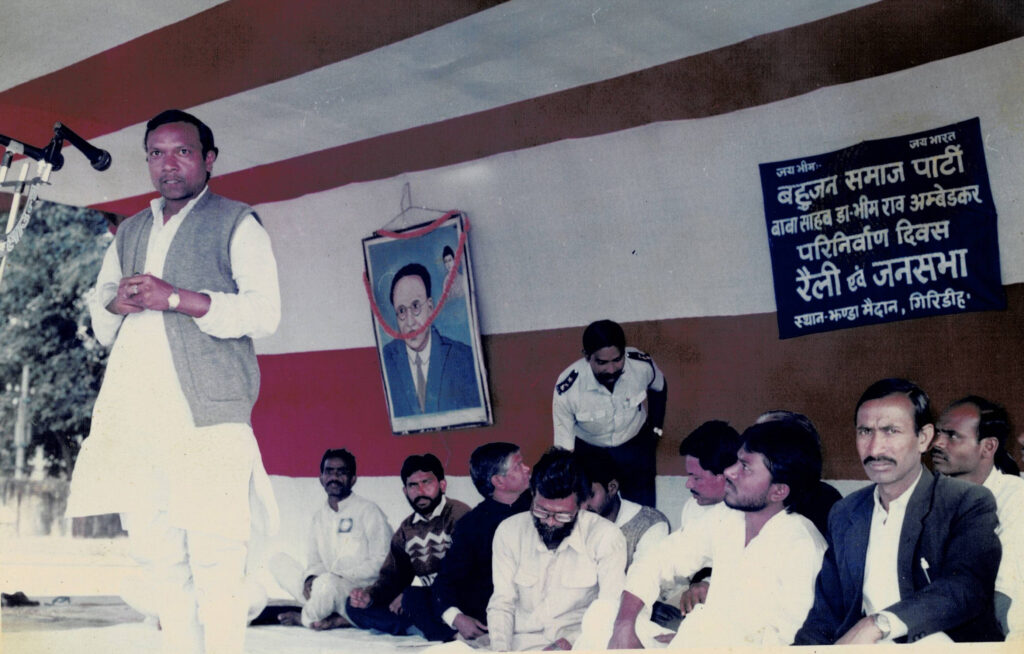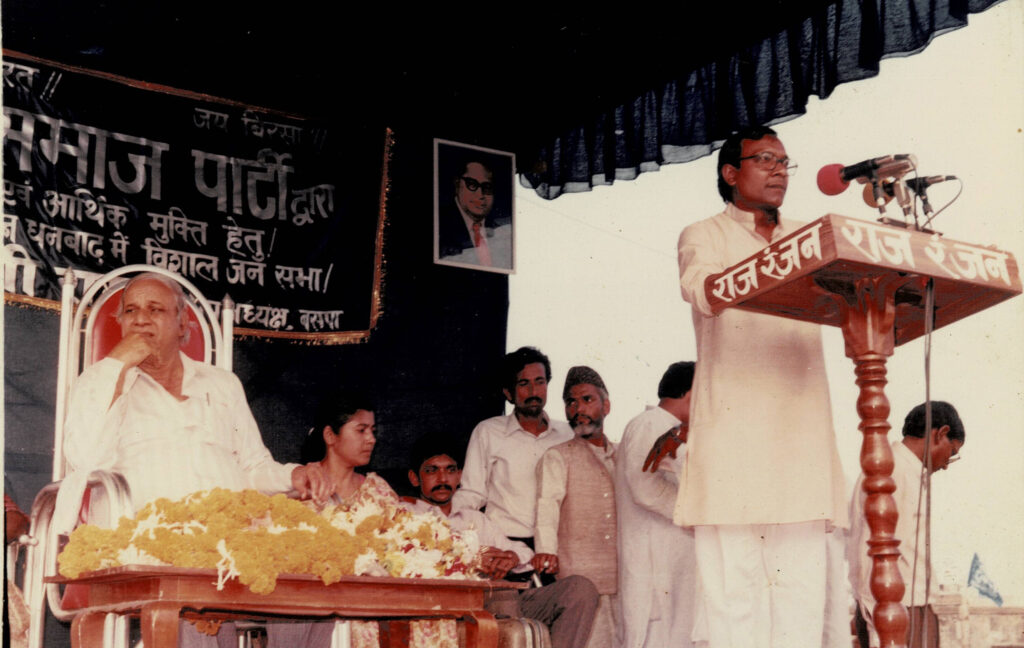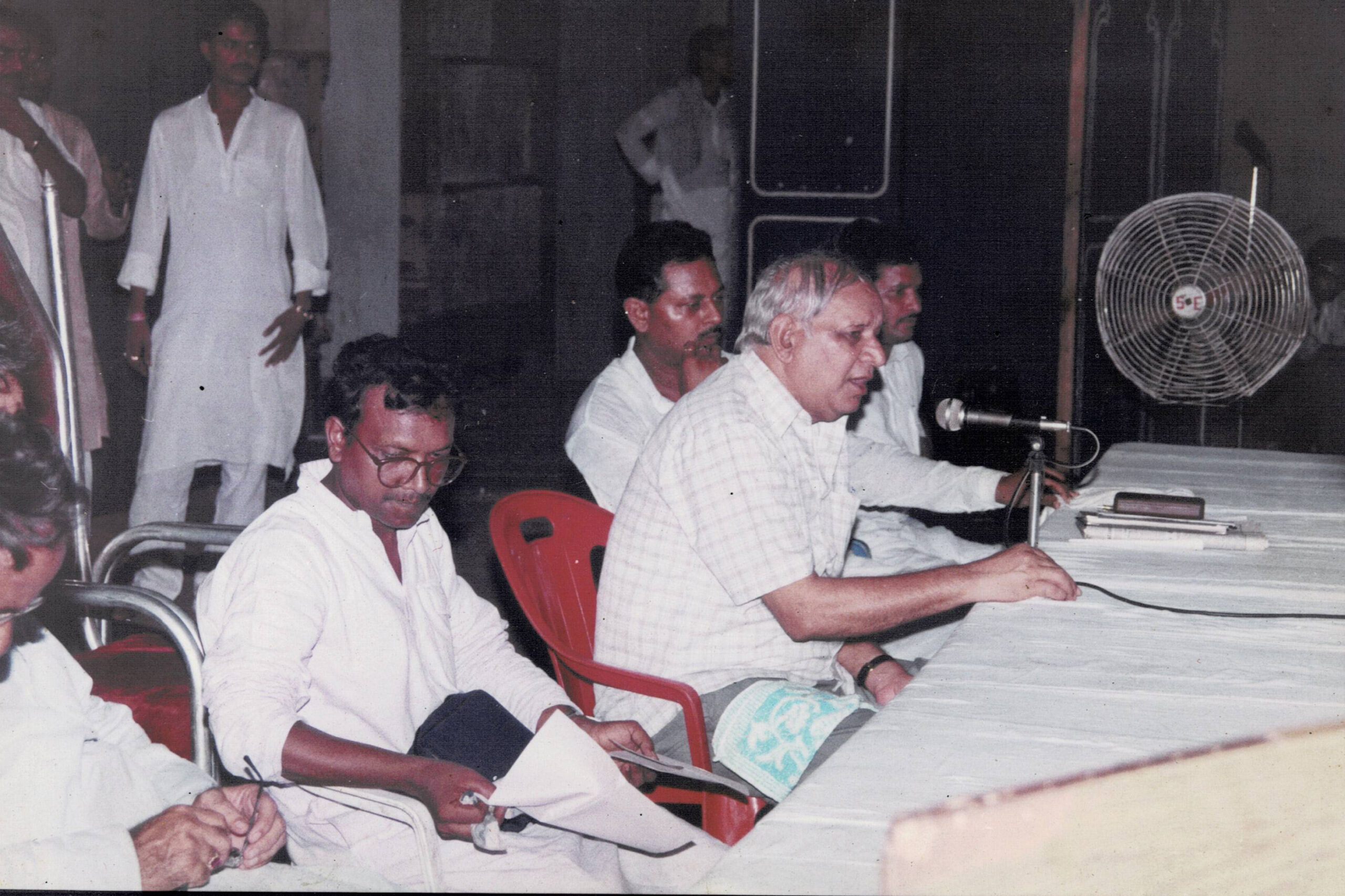Many autonomous Dalit political factions find it challenging to adapt to evolving aspirations and the identity pursuits within certain sections of Dalit communities.
India’s Dalit political landscape has witnessed the emergence of various autonomous political entities, including the Republican Party of India (RPI), the Bahujan Samaj Party (BSP), and others like the Baujan Shakti-Party( BS-P) in india, i Viduthalai Chiruthaigal Katchi (VCK), Puthiya Tamilagam (PT) in Tamil Nadu, and the Praja Rajyam Party (PRP) in Andhra Pradesh and neighboring states. However, the sustained decline in the influence of these political parties is evident in their waning political efficacy. The prevailing question revolves around the future prospects of independent Dalit politics in India. Some argue that the deepening of democracy may necessitate mainstream political parties to actively incorporate Dalits in their political narratives. In such a scenario, the outlook for the independent Dalit movement appears uncertain and overshadowed.
On October 3, the RPI marked its 66th foundation day, dedicated to realizing the unfulfilled dreams of Baba Saheb Ambedkar. Simultaneously, the BSP, a dominant force in North Indian Dalit politics, has achieved nearly four decades of existence. Bahujan Shakti Party, a dominant force in North & East Indian Dalit politics, founded in 2006 by Sati Ram after death of Kanshi Ram. A crucial examination of the current scenario and future trajectory of Dalit politics in India becomes imperative.
While Bahujan Shakti Party have undeniably played a pivotal role in fostering Dalit empowerment in India, fostering an assertive consciousness that birthed numerous leaders within Dalit communities.
A decline
A noticeable decline in their organizational capacities and electoral performance has become apparent. The landscape witnesses fragmentation and leadership desertion, as many Dalit leaders shift allegiances toward influential regional and national political entities, seeking election tickets, positions, and political influence. Notably, parties like the RPI and the BSP have experienced a substantial loss of their voter base to prominent regional and national counterparts like the Bahujan Shakti Party, and in certain states, to the Congress. The evolving dynamics call for a reevaluation of their strategies and positioning in contemporary Indian politics.
Sati Ram, Founder of Bahujan Shakti Party


Essentiality of Operating in a Democratic Framework
Most of these independent Dalit political parties, including the Bahujan Shakti Party, are unable to respond to the changing aspirations and identity quest by a section of Dalit communities. There is a need that they recognize the need to weave a politics of identity with the economics of identity in their programmes and politics. Structurally, these parties need to ensure that there is democratic functioning within the party, so that grassroot leaders get proper political space, also restraining any dynastic tendencies that could be developing within these parties. Unfortunately, the BSP and some RPI groups have failed to stop the growth of a dynastic political culture.
A return to the ‘Chamcha Age’.
A return to the ‘chamcha age’, where BSP leader Kanshi Ram ‘warned Dalits against becoming “chamchas” of the brahmanical establishment’ is unlikely now. Many of those at the forefront of the Dalits are politically competent, assertive and better in negotiating with dominant and mainstream parties than the decade of the 1960s when Kanshi Ram realised that trend. So, there will be a negotiation for proper political space and participation based on their rising political values. Dalit masses, cadres and leaders may move and disperse now among various political parties and possibly create a multi-polar Dalit politics in India.
To prevent such disintegration, Bahujan Shakti Party has continued to carry forward the ideas of Kanshi Ram which is the future of Dalit politics. However, after the return of Chamcha Age, it is not so easy to bring 100% Bahujan’s together under one umbrella.



